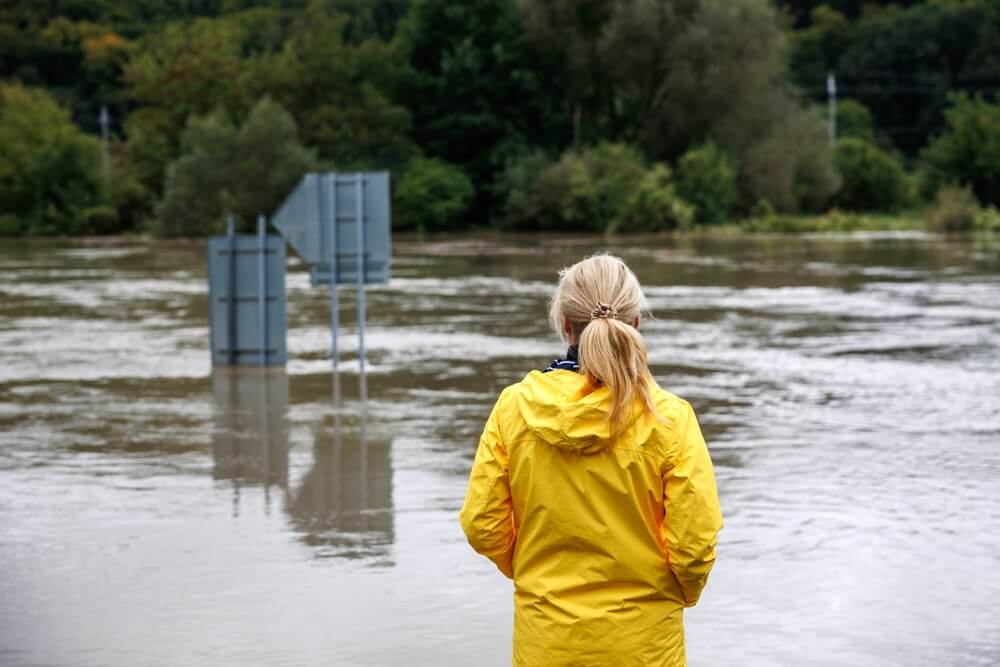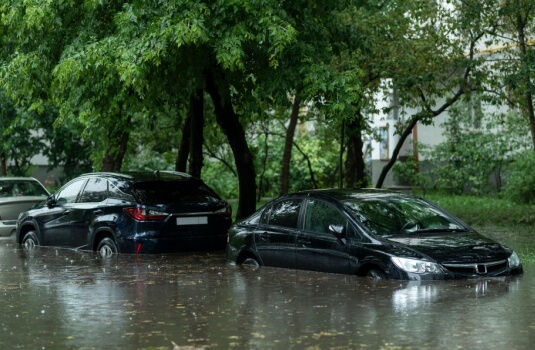
Securing flood insurance in Georgia is a smart idea, especially with the potential for hurricane landfalls and torrential downpours. Even though Georgia may not have the most hurricanes and rainy weather, it only takes one bad flooding incident to damage or destroy your personal property.
If you live in an area that has the potential to flood, you should consider adding flood insurance to your home insurance policy. The extra cost in premiums to add this coverage is well worth it if it saves you from the loss of personal property.
Examining the Need for Flood Insurance in Georgia
Homeowners may wonder, “Is flood insurance necessary in Georgia?” It’s vital to remember that no matter where you live, heavy rain can lead to flooding and be detrimental to your property. Without proper coverage, you risk losing your investment. This is among one of the common home insurance claims in Georgia.
A separate policy is necessary to cover any damage caused by water from a hurricane, river, or downpour. Your standard homeowner’s policy won’t be effective in case of this type of damage.
Georgia’s Flood History and Future Projections
Georgia has seen its share of floods causing devastation to the area. In 1990, Augusta flooded. Then in 2009, Atlanta had severe flooding that covered Six Flags and many homes in Marietta.
Finally, in 1993, the Macon floods destroyed an interstate system and water supply. These are just a few of the flooding events that occurred in the Peach State. Surprisingly, the northern part of Georgia is the most flood-prone area of the state, not the coastline like some may think.
Understanding Your Home’s Vulnerability to Flooding
Since flooding can happen anywhere, every home is vulnerable to damage by flooding. FEMA offers a Flood Map Service Center that provides an analysis of the risk in your area or neighborhood. This can serve as a guide to specific vulnerabilities your property may face. However, it is important to secure coverage regardless of your risk level. You never know when or where Mother Nature will unleash a torrent of water in some way or another.
There are several zones in Georgia, but the most flood-prone area is Fulton County.

Between The Lines: Homeowners Policy vs. Flood Insurance
It’s vital to know what your homeowners insurance doesn’t cover in Georgia. Some people may assume that their homeowners policy will cover all types of damage. You may have questioned, “is flood damage covered by home insurance?” The answer is no. You must purchase a separate policy that deals specifically with these issues. A dedicated policy is the only way to ensure your property’s protection in case of this type of water damage.
Most home insurance policies will cover damage if the pipes inside your home burst and cause flooding.
Exploring the Options: NFIP and Private Flood Insurance in Georgia
The National Flood Insurance Program (NFIP) is a federal program that provides coverage to property owners, renters, and businesses. NFIP is designed to help ease the financial burden caused by flooding. They offer affordable coverage for flood-related damage.
NFIP policies can help protect up to a certain amount for dwelling and personal property coverage. There are a few exceptions to what is covered. For example, with an NFIP policy, there is no coverage for other structures, like pools, landscaping, fences, vehicles, valuable items, financial loss due to business interruption, or personal property stored in a basement.
Homeowners can purchase up to $250,000 in dwelling coverage and up to $100,000 in personal property coverage with NFIP insurance. Each type of policy has its own costs and deductibles and is valid for one year. You will need to renew annually, or coverage stops.
Alternatively, you may prefer to purchase one of the many private Georgia policies. You can secure higher coverage limits and ensure that if something happens, you have what you need. Some carriers may be able to offer discounts for various reasons.
FAQ: Demystifying Flood Insurance for Georgia Homeowners
This list of FAQs should help ease your mind about questions you may have concerning flooding and protection.
What Constitutes a “Flood” According to Insurance Policies?
Insurers define a flood as an overflow of water from a source, such as heavy rainfall, storm surges, dams or levees breaking, or other natural events. Rising water from external sources is what distinguishes it from internal problems such as a burst pipe. It’s best to discuss the specifics with your agent to be sure you’re on the same page.
Can Flood Insurance Be Purchased at Any Time?
It’s best to purchase a policy before any known storms are on the horizon. The reason for this is because once you sign up for this type of coverage, there is a 30-day waiting period before it takes effect.
How Does a Flood Risk Rating 2.0 Impact Insurance Premiums in GA?
FEMA developed a new, individualized approach to assessing the risk that a property may have. This assessment tool is called the Risk Rating 2.0. This was created by using data from years of hazard information combined with technology. Some of the data information is gathered about the frequency of flooding, the various types of floods, proximity to water sources, and what type of building structures are involved.
What Factors Determine Flood Insurance Rates in Georgia?
Various factors go into determining what your rate will be in Georgia. Some of these factors include:
- Location
- Risk factors
- Building characteristics (such as elevation, foundation type, and proximity to water bodies)
- Coverage amount
- Chosen deductible (make sure you understand deductibles so you can choose the right amount)
You can find ways to lower your home insurance when living in a flood zone if you work with the right carrier.
Can You Purchase Flood Insurance If You’re Not in a High-Risk Zone?
Absolutely! And you should purchase a policy whether you’re in a high-risk zone or not. In fact, there have been many such water damage claims from low-risk areas.